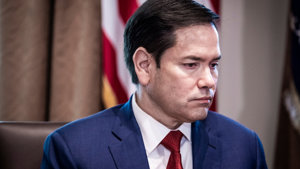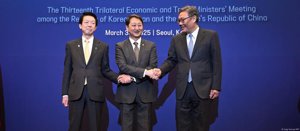
Bipartisan Bill Targets U.S. Manufacturing of Key Supplies
A bipartisan bill urges U.S. officials to identify and relocate production of key supplies currently made abroad.
Senators Call for Onshoring of Critical Supply Chains
In a rare show of bipartisan unity, Senators Joni Ernst, R-Iowa, and Lisa Blunt Rochester, D-Del., introduced legislation on Friday aimed at identifying and relocating the production of key infrastructure components currently manufactured outside the United States.
The legislation, titled the Critical Infrastructure Manufacturing Feasibility Act, directs Commerce Secretary Howard Lutnick to investigate high-demand goods not presently made in America and analyze the feasibility of moving their production onshore. The department would be required to deliver a comprehensive report within 18 months, outlining vulnerabilities in critical infrastructure supply chains and identifying solutions for domestic manufacturing.
“Supply chains are key to global competitiveness and our national security,” said Blunt Rochester. “This bipartisan legislation will help us identify where we rely too heavily on foreign imports for critical infrastructure and explore how we can bring that manufacturing home.”
The effort comes amid growing concern about America’s dependence on foreign nations—particularly adversaries—for strategically vital goods. The bill emphasizes rural and underserved areas as potential hosts for new manufacturing hubs, including industrial parks like those expanding in Delaware’s Newark and Middletown regions.
Blunt Rochester highlighted that onshoring production would not only shield the U.S. from global disruptions but also bolster the domestic workforce. “Strengthening domestic production supports American jobs, revitalizes local economies, and reinforces our nation’s resilience,” she noted.
National Security and Economic Resilience at Stake
Senator Ernst stressed that reducing U.S. reliance on foreign suppliers is essential for both economic stability and national defense. “I am working to make ‘Made in America’ the norm instead of the exception,” Ernst said. “That starts with ensuring that our manufacturers are able to get the materials they need right here.”
The Iowa Republican, who chairs the Senate Small Business & Entrepreneurship Committee, has also led initiatives to bring pharmaceutical manufacturing back to the U.S., citing national security concerns over sourcing essential ingredients from China and other countries.
“Beyond boosting domestic industry, this bill is also about safeguarding our national security by ensuring that we are not dependent on any foreign adversary for critical goods that we need,” Ernst stated.
As the United States continues to face global supply chain disruptions, the new legislation represents a proactive attempt to evaluate domestic capacity and redirect production to strategic, secure, and economically beneficial locations across the country.
If passed, the bill could pave the way for long-term infrastructure resilience, economic revitalization in rural regions, and a stronger domestic industrial base less exposed to geopolitical risk.






